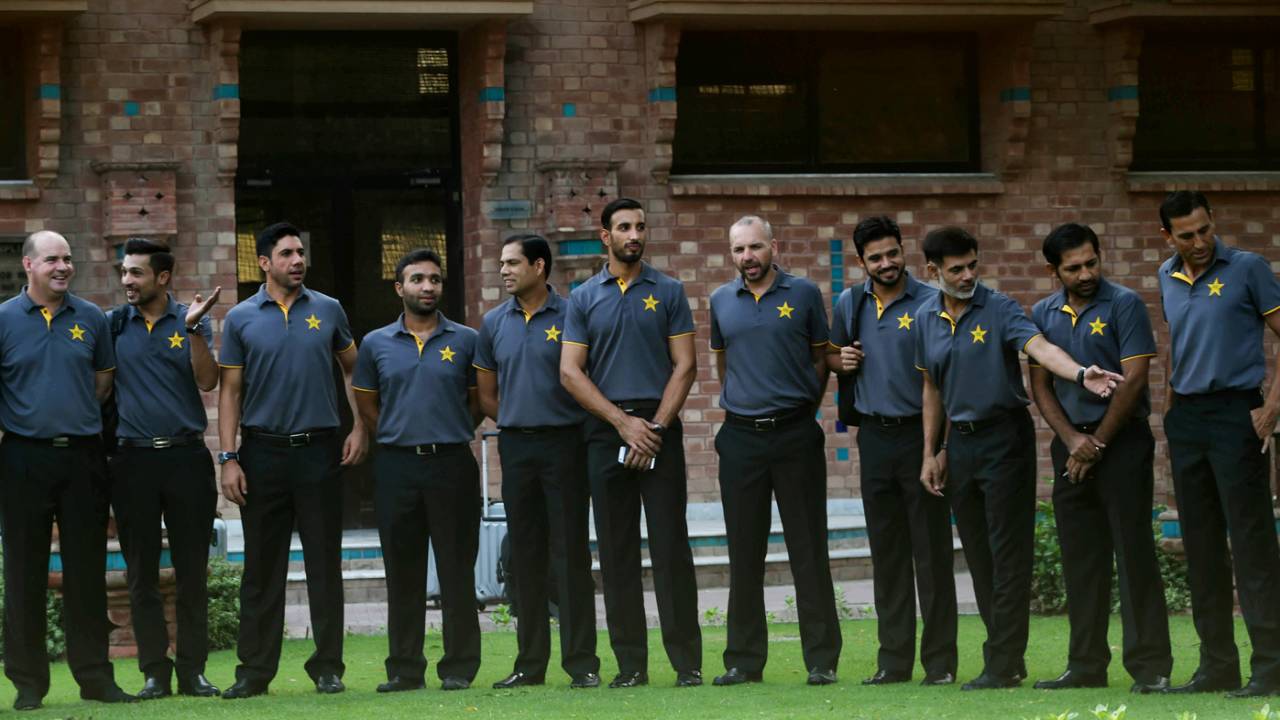Stupid as it sounds, Pakistan hasn't had a census in 18 years. Thus, everything from federal and local policy to the understanding of urban planning is built on estimates and calculations based on what little data can be gathered. A cursory search for the population of Karachi reveals numbers ranging from 17 to 24 million, a range that makes the pre-Brexit polls look like the Oracle of Delphi. That seems appropriate for a country that would rather go with the flow than have anything to do with numbers. What we can gather, though, is that over two-thirds of Pakistan's population is under the age of 35 - or to put it another way, has no memory of the last time Pakistan toured England without any real controversies.
That's not to say that England's tours to Asia have been comradely sojourns. From Idrees Baig to Shakoor Rana, Pakistani umpires have rarely seen eye to eye with visiting English players, although neither party could ever claim to be mankind's angels. And from Moin Khan's time-wasting tactics (in Karachi in 2000) to Misbah-ul-Haq's time-wasting tactics, the mythical spirit of cricket
hasn't exactly been observed.
Not that the Pakistanis are the lone culprits in this - names like Bill Athey, David Constant and Ian Botham are remembered differently in Pakistan (for those who care to remember them) than they are elsewhere. But 1987, with its incidents of crowd trouble and player confrontations, was the true beginning of the modern cricketing relationship between the two countries. In that year they played
eight Tests against each other, and fulfilled the dictionary definition of familiarity breeding contempt.
Javed Miandad maintained that the friction had to do with "cultural differences", but in his time there usually were more than half a dozen Pakistani players playing county cricket. The lack of such interaction since has only exacerbated the problems. The '90s brought accusations of ball-tampering and a
libel case that would be a far bigger deal if it happened elsewhere, but is a mere footnote in the larger Pakistan-England saga.
In the 2000s, the era of the clash of civilisations properly took root. In 2006 the confused English were introduced to the
concept of honour, and how much it means to Pakistani men of a certain ilk. And 2010 showed them that even honourable Pakistanis are quite capable of dishonourable acts.
During the 2006 and 2010 tours there was a plethora of writing on, respectively, a) Pakistani thinking, and b) the financial situation and hierarchy in the Pakistani dressing room. And throughout, Pakistan's cricketers felt like they were being conspired against, as is customary for them. Miandad was right all along, and his legacy lives on.
But what Pakistan face in 2016 is far different to what they've faced over the previous few decades. For one thing, the English establishment - the bête noire of players like Miandad, who are always looking for any perceived slight, particularly pertaining to race - is in a better place. Since Miandad's playing days, the MCC, the personification of that establishment, has even inducted actual human females into their ranks.
And the team Pakistan will face is a far cry from the ones they used to dominate. England have lost only
four out of their last 29 home series, compared to
13 out of the 29 before that, an era in which they lost more than they won at home - including three out of four series against Pakistan.
The one constant that Pakistan have faced, one that some cricketers from the '90s have argued is their only real opponent on an England tour, still survives, though. It says much about past series, and the state of Pakistani fandom, that as important as the hope that the series be competitive is the hope that the Pakistani players return without ruining their reputations at the hands of the English tabloids. For their cricketers, every tour to England has the potential to be their Ides of March. The least one should expect is a phone-hacking scandal; anything less will be a let down.
The coverage of the team so far on tour has been predictable. The focus has been on
Mohammad Amir (the prodigal son, the crown prince of Pakistani fast bowling, and prime clickbait right now) and his return. Never mind that he has been playing international cricket for over six months now. As we've learnt over the decades, if it's not happening in England or Australia, does it really count as cricket?
Otherwise the focus has been on Misbah as a lion tamer, a cool, calm head who has been able to control the savages, only with political correctness thrown in. What seems to have escaped attention is that Misbah, and his team, are far more English than stereotypically Pakistani. Of course, Pakistan don't rely on pure numbers, but on estimates and calculations based on whatever little data they can gather; but their methodology, of playing the percentages, of competence over combustion, of substance over style, is much closer to Andy Flower's England than what would generally be considered Pakistani.
And this tour is the difference between the world realising that and Pakistan falling by the wayside unable to shake off their rust, unable to acclimatise to alien conditions, forever to be known as "mercurial" and "unpredictable". They come into this series with the longest unbeaten series streak in international cricket right now, and the
second-best win-loss ratio since that 2010 tour, and yet all could come to nought in the popular imagination if they don't overcome an English team that has won 12 of its last 15 home series, and a tabloid press that loves Pakistan like no other. The hounds back home too will be out, to tear everything down, or whatever little is left by the time the team returns home. But they can always comfort themselves knowing that whatever happens, at least it'll be better than last time.

